PUEDES APRENDER MÁS SOBRE ESTE TIPO DE VERBOS EN NUESTRO CURSO ONLINE B1
En cualquier lección de inglés, todos sabéis que aparecen los ‘modal verbs‘, ya que son una parte fundamental de este idioma, y en los exámenes oficiales serán esenciales tenerlos presentes. Hoy en nuestra sección ‘Grammar tips‘ los repasamos aunque tenéis por AQUÍ otra entrada que realizamos que os puede ser también de interés.
Un verbo modal es un tipo de verbo que se usa para indicar modalidad, es decir: probabilidad, habilidad, permiso, solicitud, capacidad, sugerencias, orden, obligación o consejo. Los verbos modales siempre acompañan a la forma base de otro verbo que tiene contenido semántico.
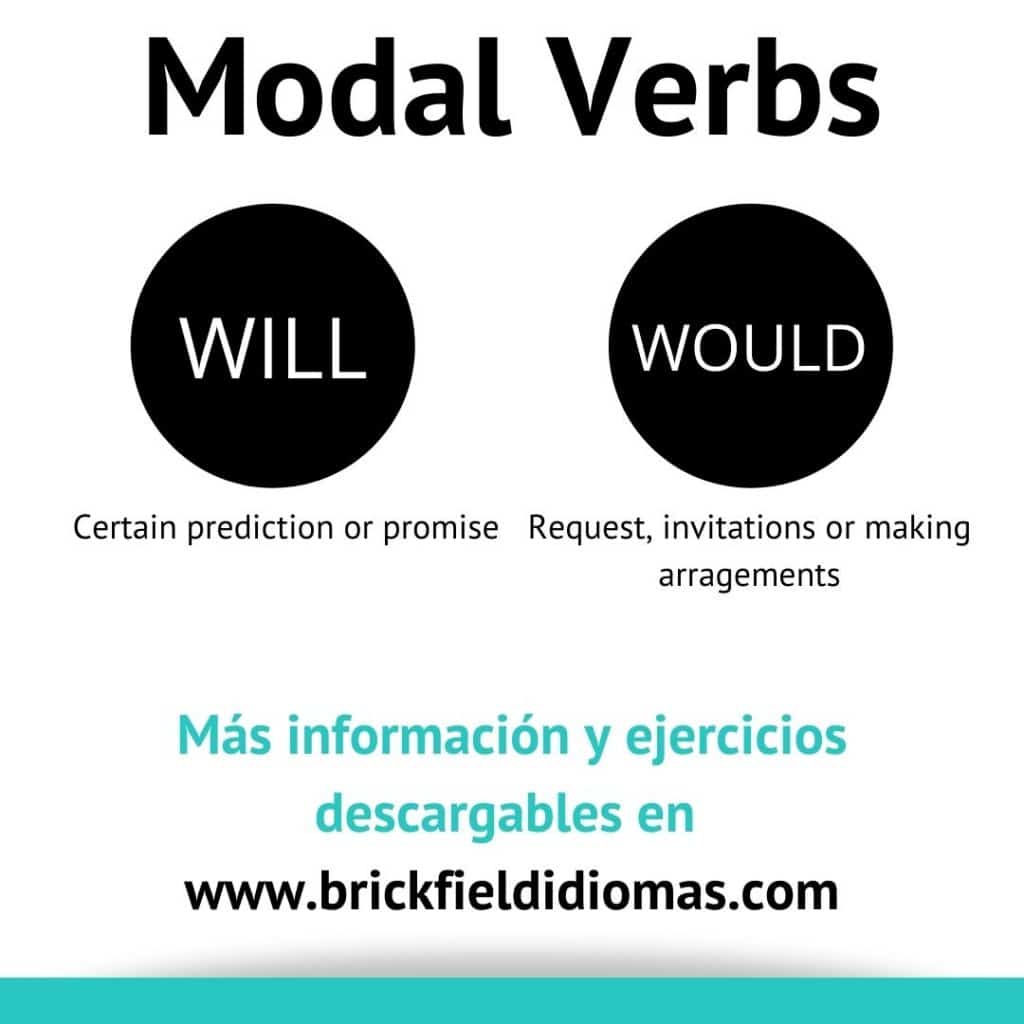
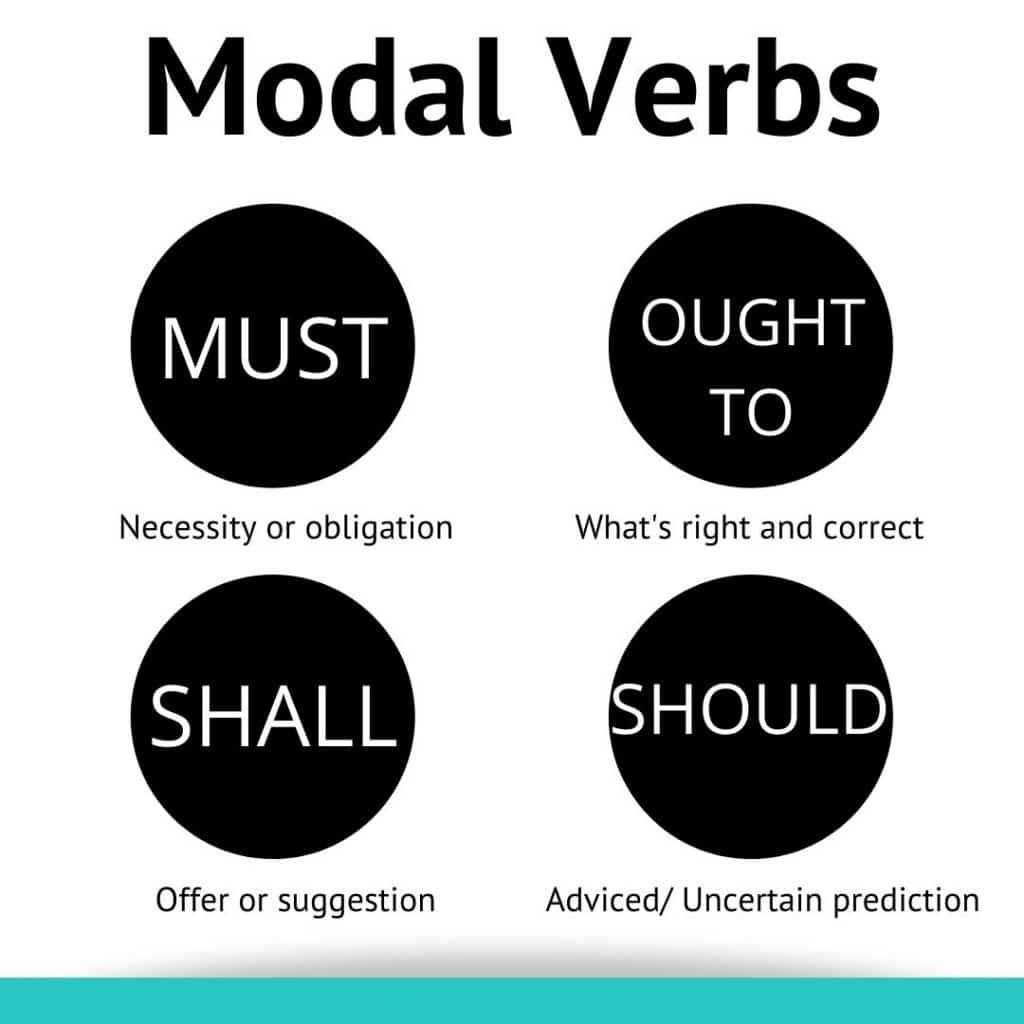
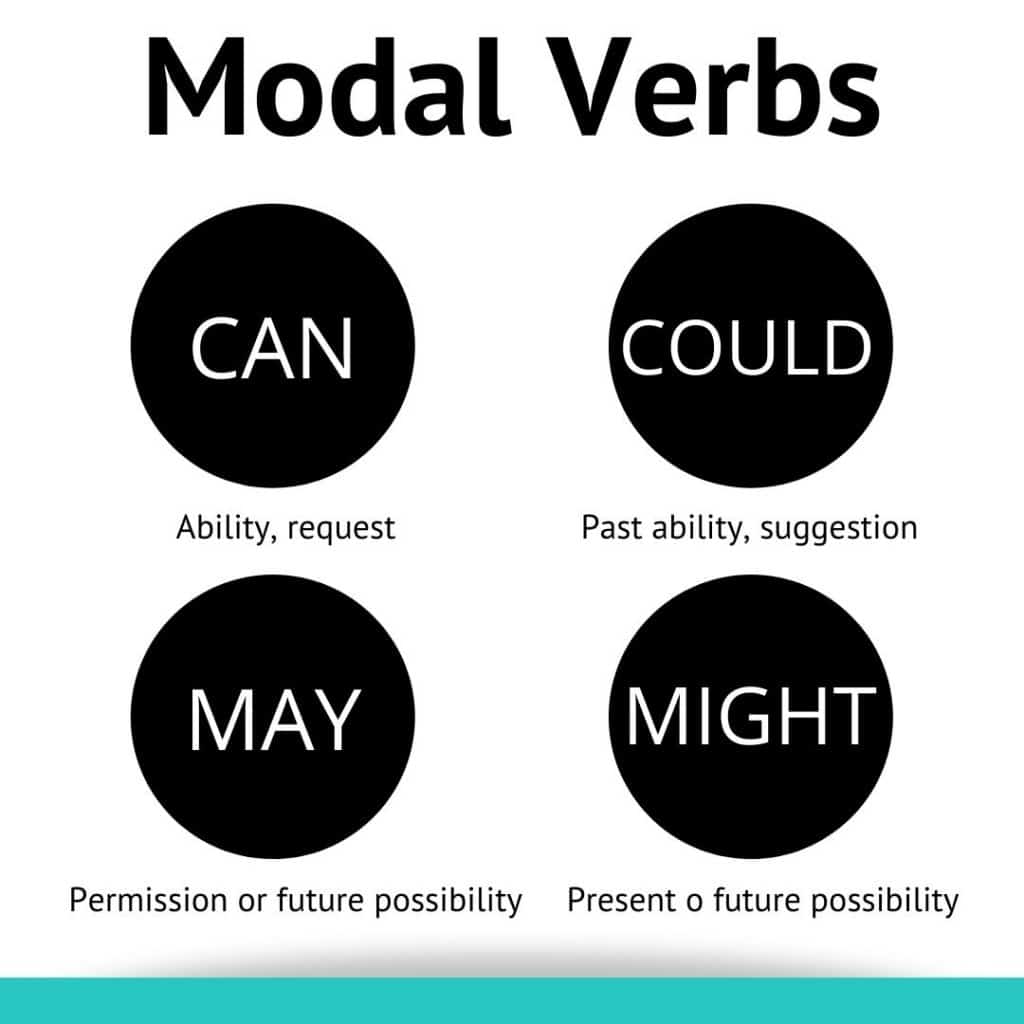
Normas de los verbos modales:
| 1. The conjugation is the same for all persons. | Example: I can, you can, he can, etc. Not: |
| 2. They are not used with the auxiliary Do. | Example: Can you run? Not: |
| 3. They are followed by the infinitive without TO. | Example: I must take my medicine. (Exception: Ought to) |
| 4. They can be made negative by adding not or the contraction –n’t. | Example: I can’t play the piano. (Exception: may not cannot be contracted) |
Nota: HAVE TO y NEED TO son semimodales, por lo que nos siguen exactamente las mismas normas, que más abajo vemos esas excepciones.
Reglas de los ‘semimodales’:
| 1. The conjugation changes for third person singular. | Example: I have to, he has to, I need to, heneeds to |
| 2. The emphatic DO may be used | Example: I do need to go, can’t you understand that? |
| 3. They are followed by TO and the infinitive. (Except the negative of need to) | Example: I have to wear a uniform. He needn’t wear a uniform. |
| 4. The negative of have to cannot be made with a contraction. | Example: I don’t have to go. Not: I |
Lista de significados y usos:
Tal y como hemos mencionado anteriormente, los modales y semimodales expresan otro significado y tienen otros usos diferentes a los verbos simples.
| MEANINGS/USES |
EXAMPLES |
| CAN 1. Ability 2. Permission 3. Request 4. Possibility |
1. I can speak English. 2. Can I borrow your pen. 3. Can you open the window? 4. I can come next Monday. |
| COULD 1. past ability 2. polite request 3. permission in Reported Speech 4. possibility 5. Second Conditional |
1. Could run fast when I was a child. 2. Could you open the window, please? 3. Mary said she could go out tonight. 4. Where’s Mary? I don’t know, she could be in her office. 5. If it didn’t rain, we could go to the park. |
| WILL 1. Certainty 2. Future: – spontaneous decisions – predictions 3. Promises 4. Commands 5. First conditional |
1. He will definitely come to the party 2a. I will call Mary before she leaves. 2b. I think the economy will get better soon. 3. I will return your money tomorrow. 4. You will do as I tell you. 5. If it stops raining we will play football. |
| WOULD 1. Polite offers 2. Conditionals 3. Habits in the past |
1. Would you like some cheese? 2. If I had a car I would change my job. 3. On Sundays we would go to the park to play football. |
| SHALL 1. Future 2. Promise 3. To ask for advice 4. Polite offers 5. To ask for instructions 6. Order |
1. I shall visit Mary next week. 2. I shall help you with your homework. 3. Shall I invite Jim to the party? 4. Shall I open the window for you? 5. Where shall I put this box? 6. You shall go there immediately |
| MAY 1. Possibility 2. Permission 3. Polite request 4. Polite offers |
1. I may be able to take a day off. 2. May I use your phone? 3. May I have some more cake, please? 4. May I help you? |
| MIGHT 1. Possibility: |
1. We might be able to join you in London next week. |
| SHOULD 1. Recommendation 2. Suggestion 3. Probability/Supposition 4. Advice |
1. You should read this book, it’s great. 2. Perhaps we should consider a different option. 3. They should be at home by now. 4. You should see a doctor at once |
| OUGHT TO 1. Moral obligation 2. Recommendation 3. Probability |
1. You ought to do as you are told. 2. You ought to see the Picasso museum. 3. They ought to be home by now. |
| MUST 1. Obligation 2. Necessity 3. Deduction/supposition 4. Invitation |
1. You must wear protective glasses in the lab. 2. I must take my medicine. 3. They left at 8 o’clock, so they must be at home by now. 4. You must stay at my house when you come to the city. |
| HAVE TO 1. Obligation |
1. I have to wear safety goggles in the lab. |
| NEED TO 1. Necessity |
1. I need to take my medicine with my breakfast. |
Negativos
| CAN’T Certainty |
Example: Mr. Simpson can’t be dead, I saw him only 5 minutes ago. |
| MUSTN’T Prohibition |
Example: You mustn‘t smoke in a hospital. |
| DON’T HAVE TO Not necessary |
Example: You don’t have to go to the party if you don’t want to. |
Entonces, estos verbos que sirven como verbos auxiliares, buscan darle un significado especifico a ciertas acciones. Ahora, ¿cuáles son y cómo utilizarlos? Domínalos con esta completa lista:
Modal verbs más comunes:
- Can
Su significado dependerá de lo que quieras decir. Puedes usarlo para expresar alguna posibilidad o petición, o para decir que estás habilitado o capacitado para algo. - Could
Este modal verb viene a ser la forma en pasado de “can”. Su significado es el mismo, pero el tiempo verbal expresa algo que ya sucedió, o también es utilizado para brindar alternativas. - May
Es una variación del verbo “can”, pero es un verbo modal más formal. Si quieres pedir permiso, esta es una buena forma. Con él puedes contar o establecer una posibilidad. - Might
Para sugerencias o posibilidades, este verbo lo expresa claramente. Su uso depende del contexto, siendo mucho más flexible que “may”. - Will
Este es un verbo que habla sobre el futuro. Predicción, pregunta o inquietud, establece que es posible o ya es factible que algo suceda después. - Would
Habla de hábitos que realizabas antes. También puede utilizarse en tiempo futuro si tu intención es mostrar que estás dispuesto a hacer algo o establecer condiciones. - Must
Expresa necesidad o una sugerencia contundente. Además, implica que puedes llegar a suponer referente a algo. - Shall
Este es un verbo no muy común por ser formal. Su significado es como el del verbo “will”, expresa algo en relación a lo que puede llegar a suceder. - Should
Se utiliza más a la hora de dar consejos, hacer o pedir sugerencias, opiniones y acciones, o para generar cierto nivel de expectativa ante algo futuro. - Ought to
No es muy frecuente que te encuentres con este verbo. Sin embargo, su significado es parecido al de “should”.
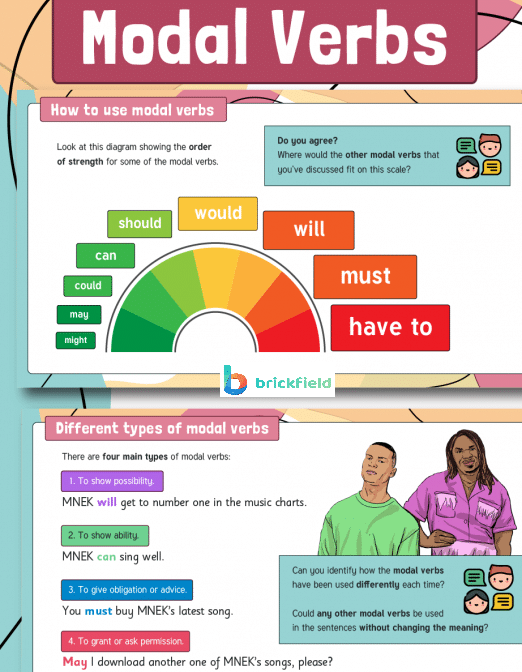

¿QUIERES DESCARGARTE ACTIVIDADES GRATIS RELACIONADAS CON ESTE POST?
Haciendo click en el botón azul podrás descargarte de forma gratuita ejercicios relacionados con todo lo que acabas de leer: vocabulario, idioms and expressions…
RECUERDA: si quieres clases de cualquier idioma a cualquier nivel, tanto grupales como particulares, sólo tienes que ponerte en contacto con nosotras escribiendo a brickfield.ci@gmail.com o por WhatsApp al 611 127 699

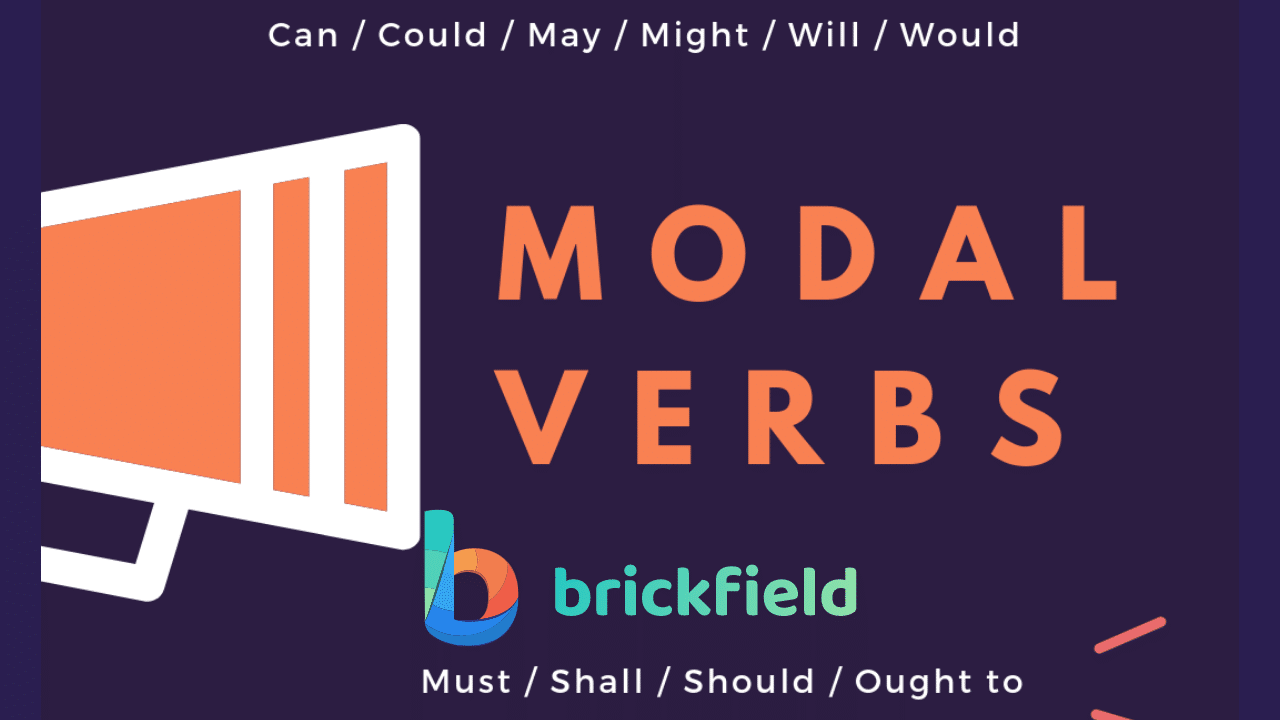





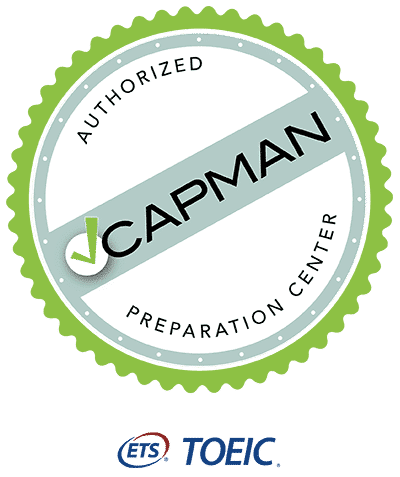

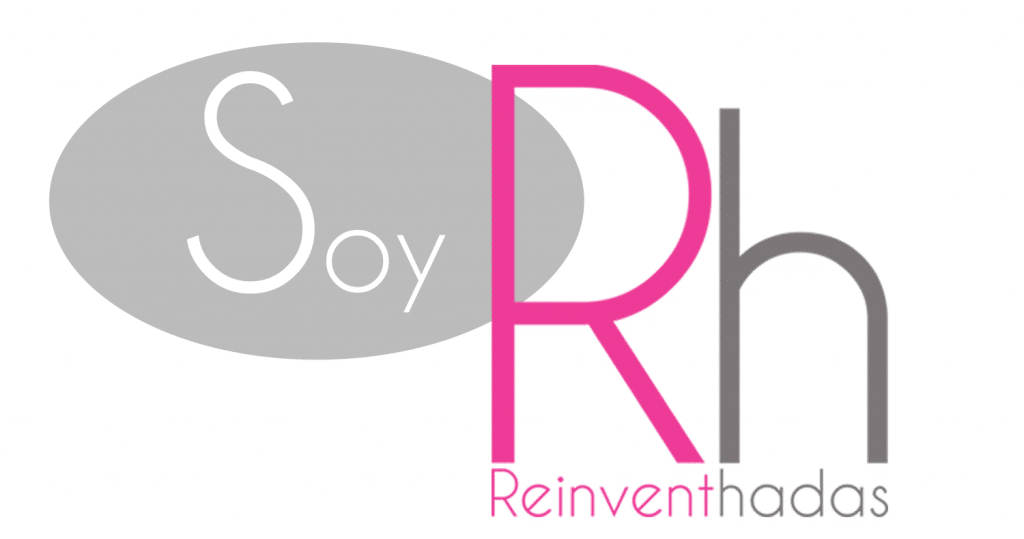

Comentarios recientes